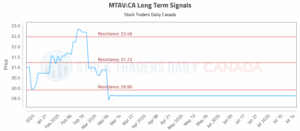Meta Reality Labs Faces Setback: Major Milestone Signals Trouble Ahead

Meta Platforms Faces Rising Losses in Reality Labs Division
Overview of Meta’s Financial Struggles
Meta Platforms, previously known as Facebook, has seen a significant increase in losses from its Reality Labs division over the years. The company’s aggressive investments in the metaverse have yet to yield substantial returns, raising concerns among investors about the viability of this venture.
Heavy Investments with Uncertain Returns
The tech giant has not only poured resources into the metaverse but is also making substantial expenditures in artificial intelligence (AI). Despite these efforts, the anticipated benefits remain elusive. The Reality Labs division has become a financial burden, accumulating losses that have reached staggering levels.
Financial Performance and Reality Labs Losses
In the latest quarterly report, Meta’s Reality Labs division reported cumulative operating losses exceeding $60 billion since it began disclosing figures for this segment in 2021. This trend of increasing losses has raised eyebrows, especially as the company continues to thrive in its core advertising business.
| Year | Operating Loss for Reality Labs |
|---|---|
| 2025 (Q1) | $4.2 billion |
| 2024 | $17.7 billion |
| 2023 | $16.1 billion |
| 2022 | $13.7 billion |
| 2021 | $10.2 billion |
These figures illustrate a troubling trajectory, with losses escalating each year.
Core Business Performance
Despite the financial drain from Reality Labs, Meta’s overall performance remains robust. The company’s profits surged by 35% in the first quarter of 2025, reaching $16.6 billion. The Family of Apps segment, which includes popular platforms like Facebook and WhatsApp, generated an impressive operating profit of nearly $21.8 billion, effectively offsetting the losses from Reality Labs.
Concerns About Future Growth
However, this success may not last indefinitely. Analysts warn that the advertising-driven revenue growth could slow, particularly if economic conditions worsen. A decline in ad spending could shift investor focus back to the troubling financials of Reality Labs, potentially leading to a sharp drop in Meta’s stock price.
Asset Allocation and Strategic Concerns
Another pressing issue is Meta’s approach to asset allocation. The company has been quick to chase emerging trends, from the metaverse to AI, without a clear strategy. Recent investments include $14.3 billion in Scale AI and plans for a standalone Meta AI app to compete with established players like ChatGPT. This aggressive pursuit of the latest tech trends raises questions about the sustainability of its strategy.
Market Sentiment and Stock Performance
Despite these challenges, Meta’s shares have risen by 19% this year, reflecting investor optimism. The stock currently trades at 27 times its trailing earnings, which may seem reasonable. However, with heavy investments in both the metaverse and AI, the company could face difficulties if economic conditions shift. A downturn in earnings could lead to a reevaluation of the stock’s value.
Conclusion: A Cautious Outlook
Given the aggressive spending and the potential for economic headwinds, it may be wise for investors to exercise caution regarding Meta’s stock. The company’s reliance on a strong advertising market makes it vulnerable to market fluctuations, and ongoing antitrust issues could further complicate its growth prospects.
Final Thoughts
Before making any investment decisions regarding Meta Platforms, it’s essential to consider alternative opportunities. Analysts have identified ten stocks that may offer better potential returns, indicating that there are other avenues for investment that could be more promising in the current market landscape.







